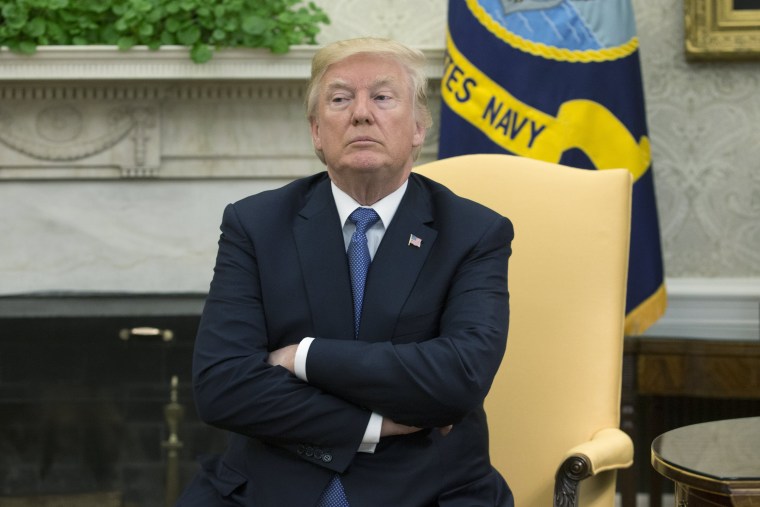Earlier this week, a bipartisan group of House and Senate negotiators reached an agreement on a spending package that would prevent another government shutdown. There was little time to waste: the funding deadline is tomorrow night.
The compromise, however, was a fairly broad outline, which led to another round of behind-the-scenes talks over the details. The final package was unveiled overnight and will likely receive a vote in at least one chamber later today. The White House has signaled Donald Trump's willingness to approve the spending deal, which would end the shutdown threat. (Then again, he's changed his mind before.)
The Associated Press published a good overview, highlighting a variety of elements in the final package, but the Washington Post flagged a point of particular interest.
Lawmakers grappled with a series of last-minute disputes Wednesday as they sought to finalize the deal, including an ultimately unsuccessful push by Democrats to include back pay for thousands of federal contractors who were caught up in the last shutdown, and -- unlike the 800,000 affected federal workers -- have not been able to recoup their lost wages.
Alas, this isn't too surprising. Democrats, led by Sen. Tina Smith (D-Minn.), pushed a provision to include back pay for federal contractors as part of the spending deal, but when reporters asked Sen. Roy Blunt (R-Mo.) yesterday whether it would be included, the senator replied, "I've been told the president won't sign that."
The issue could, in theory, be addressed through a separate bill, but its prospects are unclear at this point.
It's worth noting who'll be hurt by this. Some may hear "government contractor" and think of a giant defense contractor that already has considerable resources.
But in this case, we're actually talking about a very different kind of workforce. As Vox recently explained, in reference to those adversely affected by the shutdown, "Up to 580,000 contractors, including cafeteria workers, security guards, developers, and IT consultants, could be missing out on back pay because of the impasse, according to NYU public service professor Paul Light."
Federal officials could approve their back pay. The president doesn't want to.
There's something painfully consistent about Trump's posture. After all, the Republican has spent many years stiffing contractors, indifferent to the toll on small businesses. Remember this USA Today article from three years ago? The headline read, "Trump's Trail Of Unpaid Bills."
During the Atlantic City casino boom in the 1980s, Philadelphia cabinet-builder Edward Friel Jr. landed a $400,000 contract to build the bases for slot machines, registration desks, bars and other cabinets at Harrah's at Trump Plaza.The family cabinetry business, founded in the 1940s by Edward's father, finished its work in 1984 and submitted its final bill to the general contractor for the Trump Organization, the resort's builder.Edward's son, Paul, who was the firm's accountant, still remembers the amount of that bill more than 30 years later: $83,600. The reason: the money never came. "That began the demise of the Edward J. Friel Company ... which has been around since my grandfather," he said.
As we discussed at the time, a variety of working-class Americans -- mechanics, plumbers, painters, waiters, dishwashers, etc. -- were contracted to do work for Trump. They did the work and expected to be paid. Trump established an extraordinary pattern of simply refusing to write a check.
He would instead offer them a partial payment. If the business balked, Trump gave them an untenable choice: sue him, despite the costs of the litigation, or simply accept less than he promised.
As president, Trump is still finding ways to hurt contractors.
